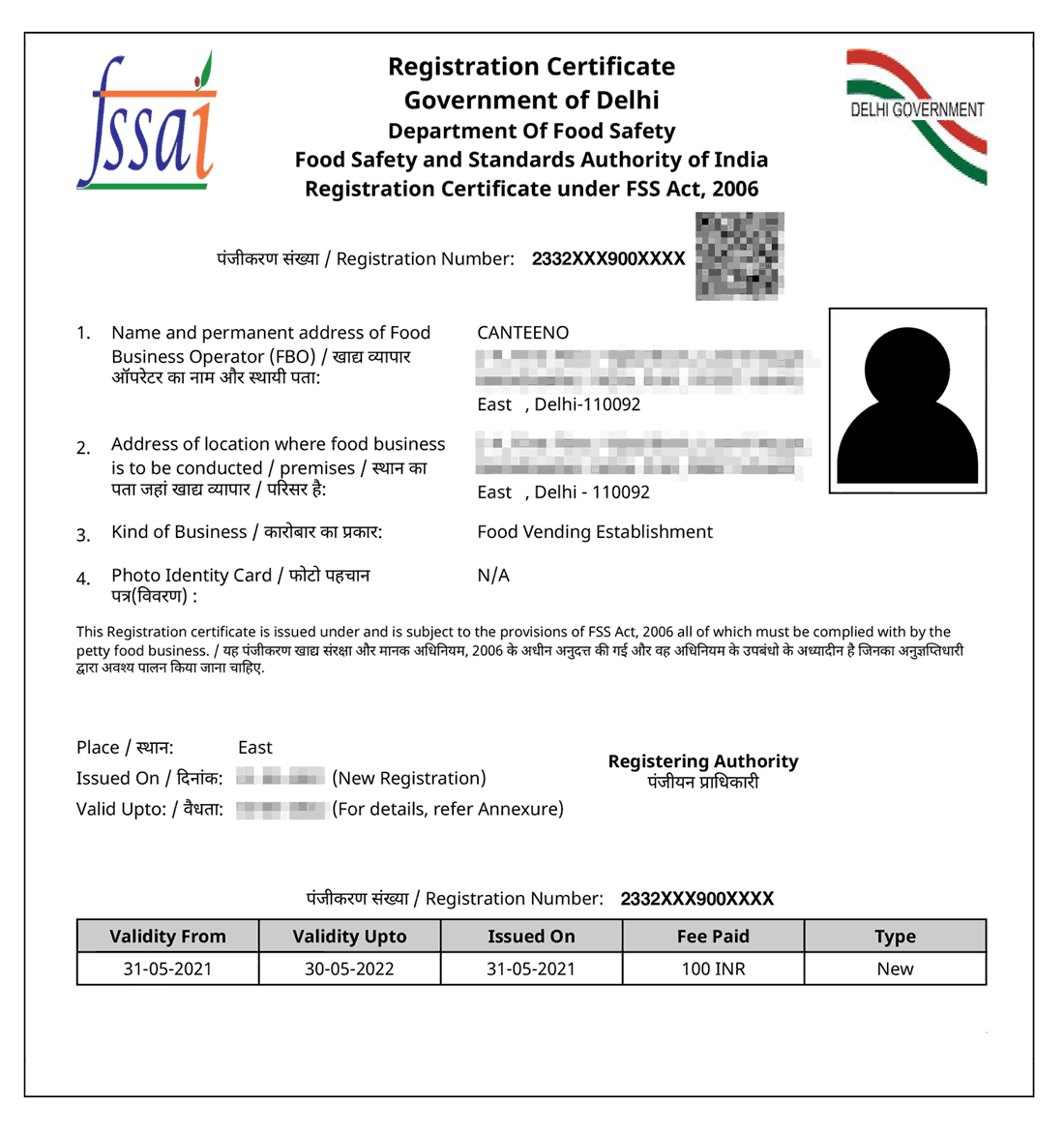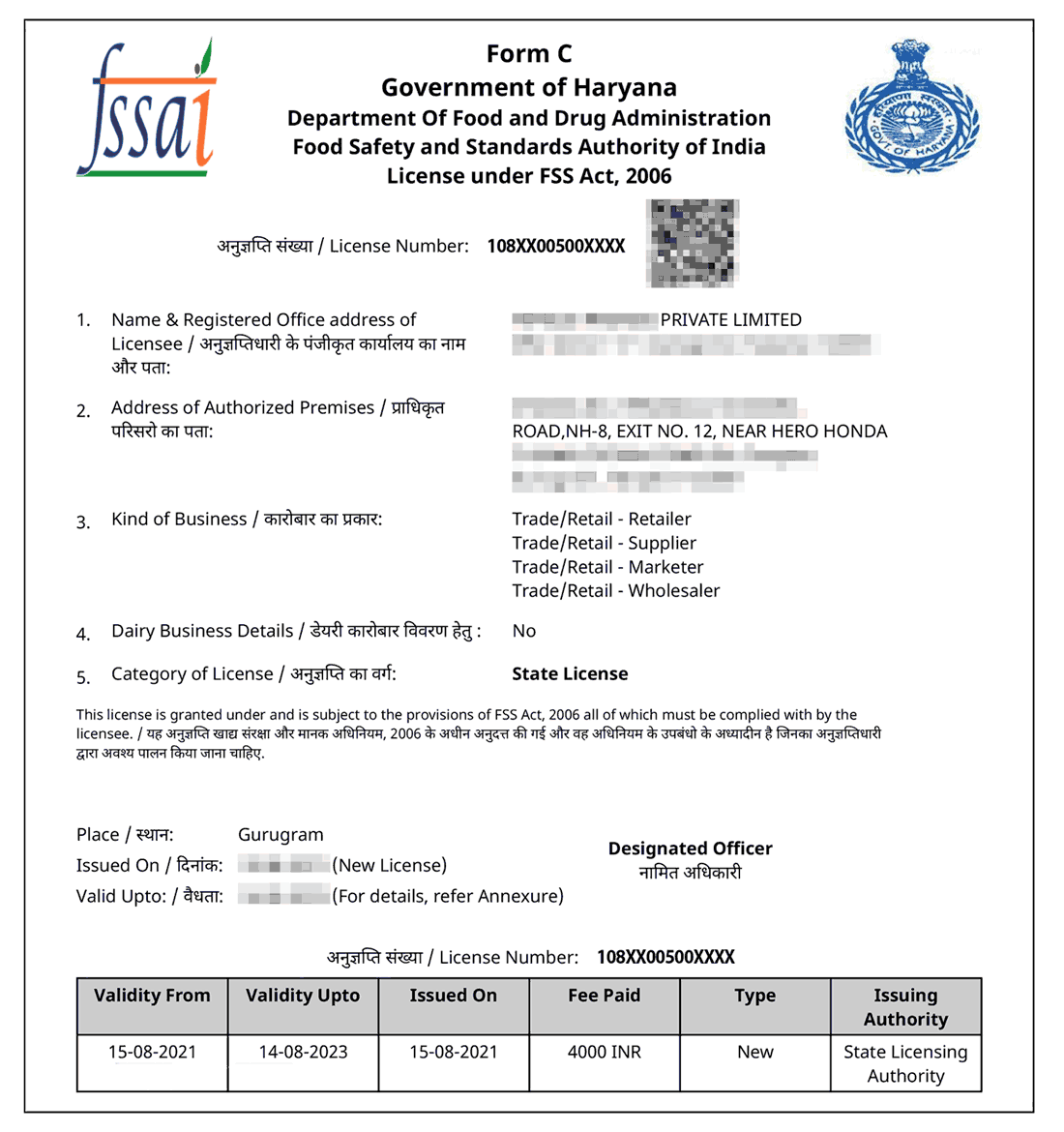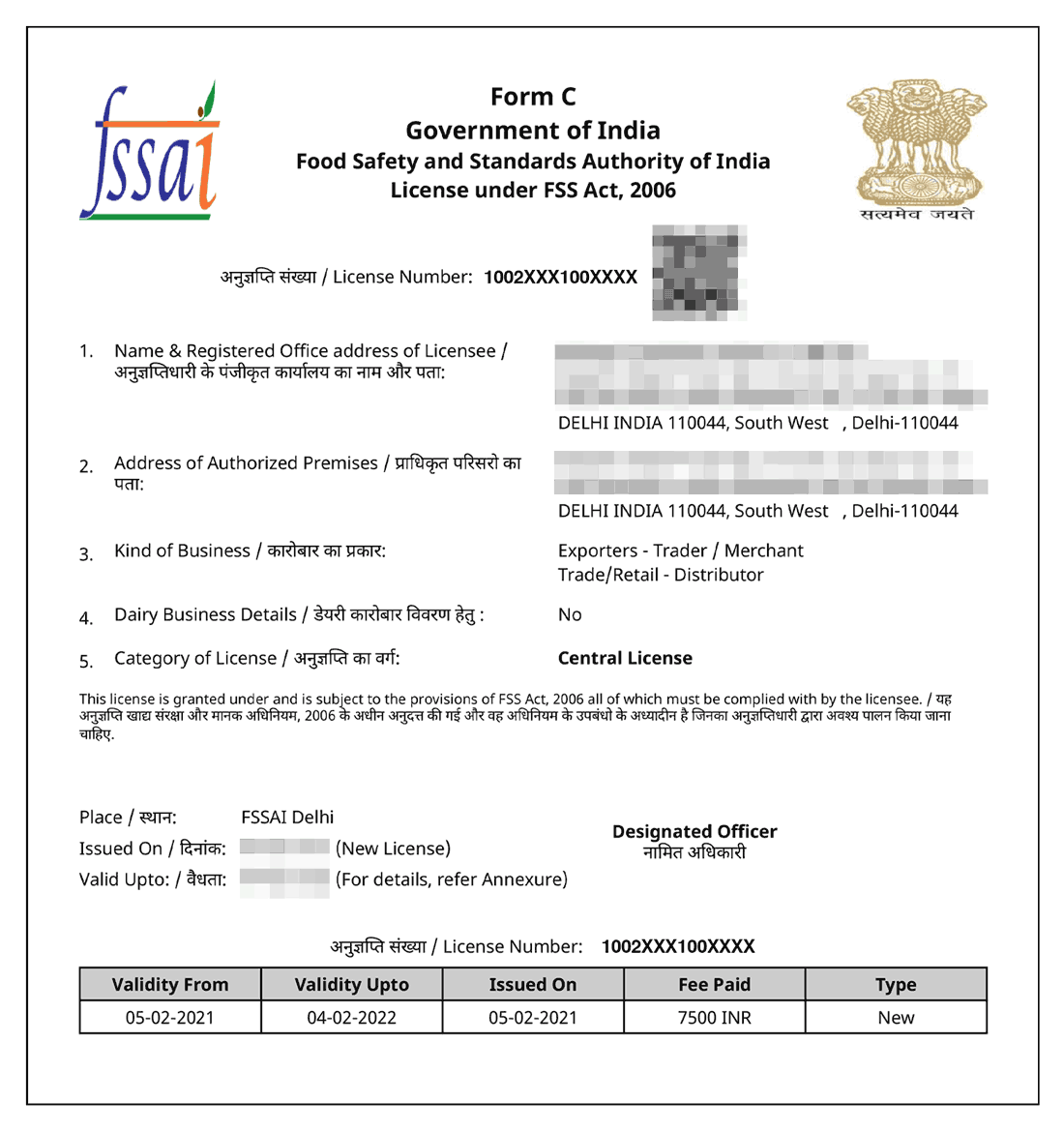Updated on January 08, 2026 01:26:17 PM
If you are engaged in the manufacture, processing, packing, distribution, or sale of drinks in India, obtaining an FSSAI license is a requirement. The Food Safety and Standards Authority of India (FSSAI) is the governmental agency that makes sure food and beverage products marketed in the country are safe and of good quality. These range from packaged fruit juices and soft drinks to bottled water, energy drinks, milk-based beverages, and more.
The FSSAI license is mandated by law and also contributes to customer trust. When a product bears an FSSAI license number on its label, it ensures customers that the drink has complied with all the health and safety regulations laid down by the government. This is particularly vital for companies wishing to expand, supply products to supermarkets, or export drinks to other nations.
There are three categories of FSSAI licenses: Basic, State, and Central, based on your business size and turnover. Obtaining an FSSAI license means sending the necessary documents and going through the right process online.
FSSAI License for Beverages [Sample]



The FSSAI License for Beverages is a compulsory food safety certificate provided by the Food Safety and Standards Authority of India (FSSAI) to companies engaged in the manufacturing, processing, packaging, distribution, or sale of beverages and drinks. Whether you are handling packaged fruit juices, soft drinks, milk-based drinks, energy drinks, flavored water, or any other beverage, you need to get this license to operate legally in India.
The FSSAI license guarantees that the drinks you provide are safe to consume, hygienic, and not contaminated with any harmful substances. It also guarantees consumers that the product has been authenticated by the government and conforms to food safety regulations.
Following are the Advantages of FSSAI License for Beverages:
Documents Required for FSSAI License for Beverages under Basic, State, and Central licenses:
| License Type | Documents Required |
|---|---|
| Basic License |
|
| State License |
|
| Central License |
|
Acquiring an FSSAI License for Beverages: A Step-by-Step Guide
The first thing that the applicant needs to do is to access the official website of FoSCOS, the Food Safety Compliance System.
Before applying, it is very important to decide whether a Central or State License is to be obtained. Each location should be separately entered to decide on its eligibility.
Once the website is loaded, click "Sign-up" for the desired license type. Fill in the registration form with contact details, whereby the phone number and email address provided will be active and accessible.
Choose a unique username and set up a password during registration. Upon completion of the form, click 'Register' to finalize the sign-up.
Confirmation of account activation via an SMS and email to the applicant after successful registration.
Use your new credentials to log into the system and fill out the online FSSAI Registration Application Form. All details should be correct and complete.
Before submitting online, print a copy of it. Once submitted online, a reference number will appear on the screen, very important for tracking the application process.
Within 15 days of applying online, a photocopy of the filled application form should be sent to the respective regional or state FSSAI office. This is so that the application is considered and processed.

FSSAI License Fees for Beverages Fees vary based on the license type. The government fee starts at ₹100 for Basic Registration, ₹2,000 for a State License, and ₹7,500 for a Central License. Additionally, professional fees for application processing and documentation support are ₹2,000 for Basic Registration, ₹5,000 for a State License, and ₹7,500 for a Central License.
| FSSAI License Type | Government Fee (INR) | Professional Fee (INR) |
|---|---|---|
| FSSAI Basic Registration | ₹ 100 | ₹ 2,000 |
| FSSAI State License | ₹ 2,000 | ₹ 5,000 |
| FSSAI Central License | ₹ 7,500 | ₹ 7,500 |
Note: The aforementioned fees are exclusive of GST
Obtaining an FSSAI license for your beverage company is not only a regulatory requirement but a wise move towards establishing a reliable and successful brand. If you're a small juice bar, a packaged drink company, or intending to export drinks, the correct FSSAI license guarantees that you adhere to the safety and sanitation norms established by the government. It enhances your brand's reputation, generates consumer confidence, and creates new business opportunities. In a word, an FSSAI license is essential for operating a beverage business successfully and lawfully in India.
Professional Utilities simplify registrations, licenses, and compliances for your business. With experienced guidance and nationwide support, we help you complete every requirement efficiently and effectively.






"Explore how Professional Utilities have helped businesses reach new heights as their trusted partner."

It was a great experience working with Professional Utilities. They have provided the smoothly. It shows the amount of confidence they are having in their field of work.

Atish Singh
It was professional and friendly experience quick response and remarkable assistance. I loved PU service for section 8 company registration for our Vidyadhare Foundation.

Ravi Kumar
I needed a material safety data sheet for my product and they got it delivered in just 3 days. I am very happy with their professional and timely service. Trust me you can count on them.

Ananya Sharma
Great & helpful support by everyone. I got response & support whenever I called to your system. Heartly thanx for Great & Super Service. Have a Great & Bright future of team & your company.

Prashant Agawekar
Thank you so much Professional Utilities team for their wonderful help. I really appreciate your efforts in getting start business. Pvt Ltd company registration was smooth yet quick.

Abhishek Kumar
I applied for Drug licence and company registration and their follow-up for work and regular updates helped me a lot. They are happily available for any kind of business consultancy.

Vidushi Saini
Great experience went to get my ITR done, process was quite convenient and fast. Had a few queries, am happy about the fact those people explained me all things I wanted to know.

Taniya Garyali
Great services provided by Professional Utilities. They are best in this industry and the best part is their prices are so affordable. Kudos to you. Now you guys are my full-time consultant.

Aftab Alam
Frequently Asked Questions (FAQs)
Yes, it is compulsory for any company or individual who is engaged in the manufacturing, storage, distribution, or sale of beverages to hold an FSSAI license.
If your turnover is less than ₹12 lakh a year, you require a Basic FSSAI License. ₹12 lakh to ₹20 crore requires a State License. Anything above ₹20 crore needs a Central License.
No, even online vendors are required to possess a valid FSSAI license in order to sell drinks legally online on e-commerce sites.
The license is issued for 1 to 5 years, as chosen at the time of application. It should be renewed when it is about to lapse.
Running without a valid license may cause you fines, legal proceedings, and even the shutdown of your business by food safety officials.
It typically takes 7–30 working days, depending on the category of license and the completeness of the documents.
No, you must have a separate license for each outlet. However, if you have multiple outlets, you can apply for a central license with branch declarations.
Yes, if you are producing and selling drinks, even from home, and your turnover exceeds ₹12 lakh, then you need an FSSAI license.
Speak Directly to our Expert Today

Reliable

Affordable

Assured
Industries Served by
Professional Utilities
Apparels
Footwear
Furniture
Gems and Jewellery
Tourism & Hospitality
Consumer Electronics
Chemicals
Telecom
Oils & Gas
Hotel
Railways
Liquor
Health & Medical
Food Processing
Dangerous/ Haz. Goods
Tea & Coffee
Capital Goods
Recycling
Rubber
NGOs
Silk
Handloom
IT & BPM
Steel
Automobile
Tobacco
Constructions